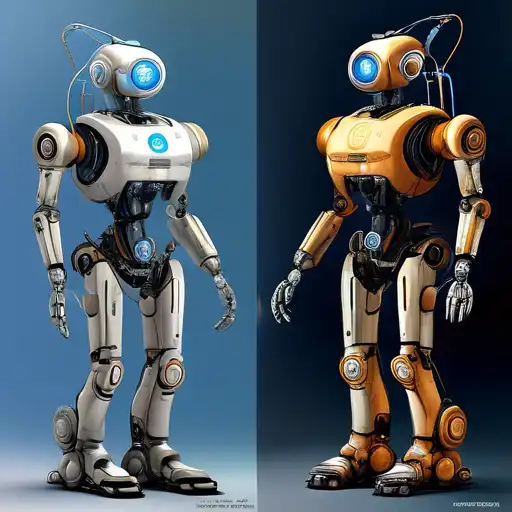The Dawn of a New Era in Technology
Robotics is no longer a concept confined to science fiction. Today, it stands at the forefront of technological advancement, promising to revolutionize industries, enhance human capabilities, and redefine the way we live and work. From manufacturing floors to the depths of space, robotics is paving the way for a future that was once unimaginable.
Understanding Robotics and Its Impact
At its core, robotics combines engineering, computer science, and artificial intelligence (AI) to create machines that can perform tasks autonomously or semi-autonomously. These tasks range from the simple, like assembling cars, to the complex, such as performing delicate surgeries. The impact of robotics is vast, touching every sector including healthcare, agriculture, and even entertainment.
The Role of AI in Robotics
Artificial intelligence is the brain behind the operation, enabling robots to learn from their environment, make decisions, and improve over time. This synergy between robotics and AI is accelerating the development of smarter, more adaptable machines capable of tackling challenges beyond human limitations.
Applications of Robotics in Today's World
The applications of robotics are as diverse as they are transformative. Here are just a few areas where robotics is making a significant impact:
- Healthcare: Surgical robots assist doctors in performing precise operations, reducing recovery times and improving outcomes.
- Manufacturing: Industrial robots automate repetitive tasks, increasing efficiency and safety on the production line.
- Exploration: Robots venture into hazardous environments, from deep-sea trenches to outer space, gathering data where humans cannot.
- Everyday Life: Domestic robots, like vacuum cleaners and lawn mowers, are becoming commonplace, simplifying household chores.
Challenges and Ethical Considerations
Despite its potential, the rise of robotics brings challenges, including job displacement, privacy concerns, and ethical dilemmas around autonomous decision-making. Addressing these issues requires thoughtful regulation and a collaborative approach between technologists, policymakers, and the public.
The Future of Robotics
Looking ahead, the possibilities are endless. Advances in materials science, AI, and nanotechnology promise to make robots more versatile, energy-efficient, and integrated into our daily lives. The next frontier in robotics may well be the development of machines that can think, learn, and interact with humans in ways that blur the line between man and machine.
As we stand on the brink of this technological revolution, it's clear that robotics will play a pivotal role in shaping our future. By embracing innovation while addressing its challenges, we can harness the power of robotics to create a better, more efficient, and more inclusive world.
For more insights into the latest technological trends, check out our articles on AI Revolution and The Future of Automation.
